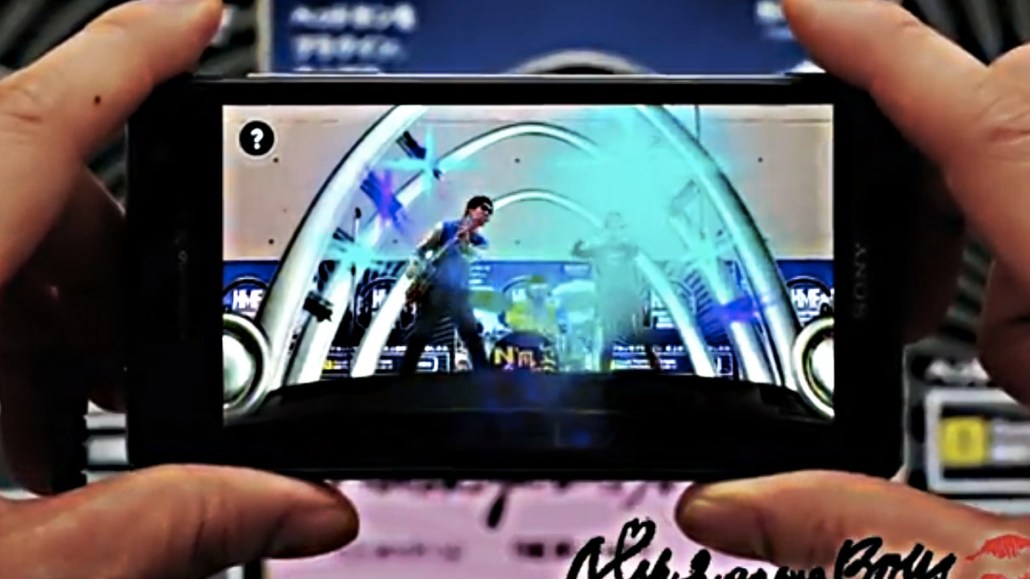Secure your place at the Digiday Publishing Summit in Vail, March 23-25

Augmented reality is the new tech everyone loves to hate. Sure, there have been some disastrous and gratuitous uses of the tech, but that doesn’t mean all hope is lost.
Sony put on a rock show in Japan — where else? — that didn’t involve a stage or a crowded venue. It just took some smartphones, an app, headphones and some augmented reality magic.
With the help of agency Naked Communications, Sony put on a “Headphone Music Festival” to promote its headphones, which are specifically designed for smartphones. To bring the concert to life, Sony created an app using its SmartAR technology. To watch the concert, all people had to do was download the app, put on their headphones and then scan a “Headphone Music Festival” poster to see virtual performances on their smartphones by four popular local bands.
This was the first augmented reality concert. This is definitely a cool way to showcase new technology and give people a cool experience. There have been some others. Last year, Maybelline created an augmented reality app that let people see what different nail polishes would like like on their nails before purchasing the color. To save shelf space, U.K. supermarket chain Tesco experimented with AR to showcase certain products without having to have them physically on store shelves. There are definitely useful and interesting ways that brands can use augmented reality.
More in Marketing

‘The conversation has shifted’: The CFO moved upstream. Now agencies have to as well
One interesting side effect of marketing coming under greater scrutiny in the boardroom: CFOs are working more closely with agencies than ever before.

Why one brand reimbursed $10,000 to customers who paid its ‘Trump Tariff Surcharge’ last year
Sexual wellness company Dame is one of the first brands to proactively return money tied to President Donald Trump’s now-invalidated tariffs.

WTF is Meta’s Manus tool?
Meta added a new agentic AI tool to its Ads Manager in February. Buyers have been cautiously probing its potential use cases.





